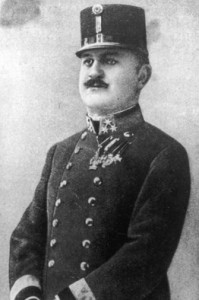August marks the 100th anniversary of the start of World War I, when the Austro-Hungarian army shelled Belgrade, the capital of Serbia, in retaliation for the assassination of Archduke Franz Ferdinand by Serbian nationalists.
What the Austrians did not know at the time was that their war campaign had been fatally compromised. Their own head of counterintelligence, Col. Alfred Redl, had been selling the Russians information about the intelligence networks in the U.S. and Europe. Worse, he had given them all of Austria’s military secrets, including the attack plan against Serbia. Nor did the Austrians realize, until it was too late, that Col. Redl had been feeding his own side a diet of false information about the size and strength of the Russian Army.
Redl’s actions contributed to the collapse of the Austro-Hungarian Empire and the deaths of hundreds of thousands of Austrians. But he was not around to witness his handiwork. After his surprise exposure in 1913, his superiors allowed him to commit suicide rather than face arrest—a piece of supreme folly that left the Austrians completely in the dark about the full extent of his betrayal.






